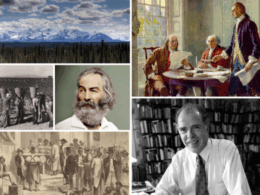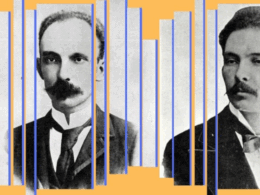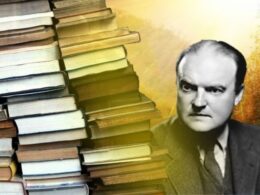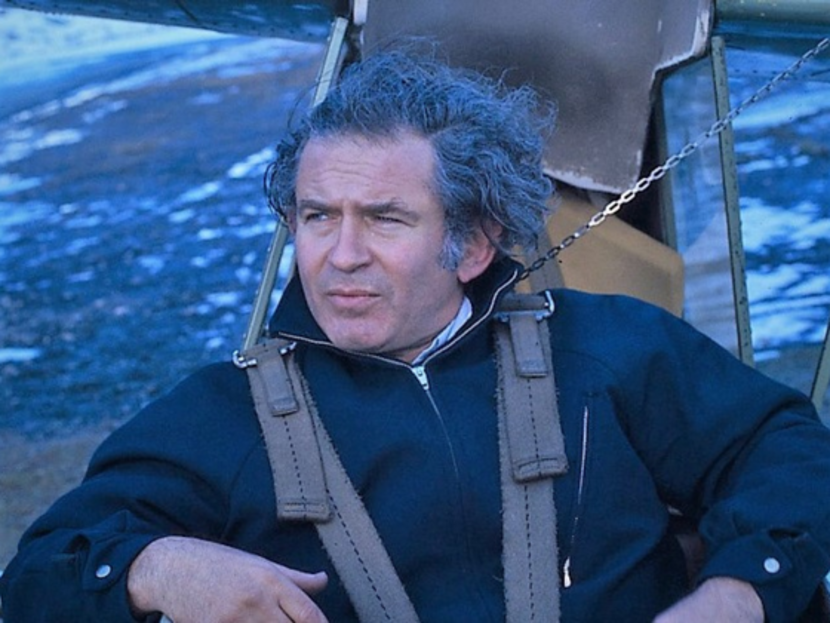
Today is the 100th birthday of Norman Mailer, whose prodigious six-decade career as a novelist, journalist, and cultural commentator was defined by irreducible complexities and contradictions. The untrammeled confidence, verve, and precision of his writing, set against the excesses and transgressions of his personal life, has created no end of intellectual and moral fodder for readers and critics.
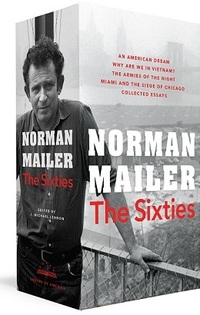
At the same time, his greatest works—1948’s The Naked and the Dead, his pioneering, politically charged nonfiction of the 1960s—speak to, in the words of biographer J. Michael Lennon, “the permanent cleft in the American character,” with the nation’s reactionary, authoritarian impulses to one side and its multivocal, democratic spirit to the other.
Below, we collect a handful of Mailer-related writings, interviews, videos, and scholarly resources from across the web that show the man in all his multiplicity: polemical public figure, Jewish boy from Brooklyn, and creator of a peerless literary legacy eminently deserving of reappraisal and rediscovery.
INTERVIEWS & ESSAYS
Interview with J. Michael Lennon
Published on the LOA website in 2018 to coincide with the release of Norman Mailer: The Sixties, this talk with volume editor and Mailer biographer J. Michael Lennon explores the writer who “threw himself unreservedly into the most tumultuous era in modern American history.”
Mailer has a forceful style, an urgent style; he is always putting the uncomfortable, tough questions on the table. He didn’t go in for fancy evasions. He didn’t have all the answers, not at all, but he was forever in search of better, sharper questions. Identity and ambition were his personal lodestars, and this alienated many, but others like me cheered his refusal to paper over intractable problems, to go away quietly, to shut up.
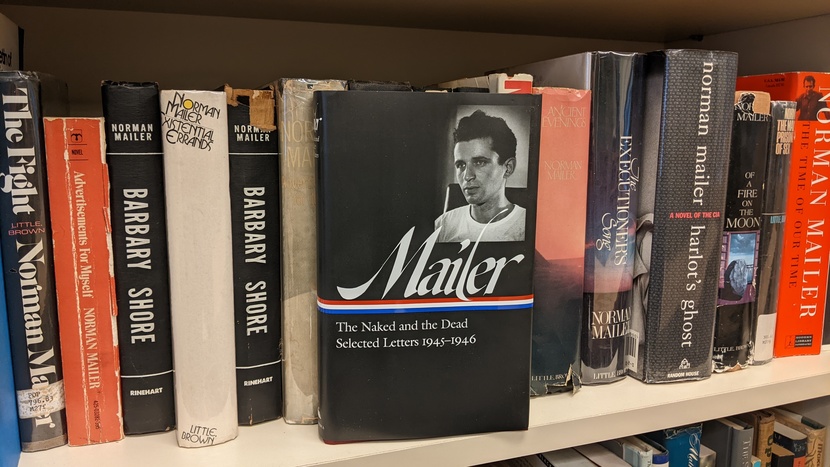
David Denby on the making of Mailer
In his recent New Yorker essay discussing Mailer’s formative years in the Army and the genesis of his debut novel, The Naked and the Dead, critic David Denby traces the authors origins and puts his rise to literary celebrity into context.
What Mailer did in the war was not heroic. At first, working at headquarters on Luzon, he typed reports, laid wire, built a shower for officers. Humiliated and bored, he volunteered for a reconnaissance squad. He went on twenty-five patrols, many of them fifteen miles long, and he finally saw some combat: nothing much, as he admitted, but he knew what it was like to climb up a damp, rocky hill in the heat while burdened with a rifle, ammunition, grenades, two canteens, a steel helmet—perhaps forty pounds in all. His real mission was to see the worst and make an account of it. He wrote long letters to [his wife] Bea . . . , some of which were detailed and harrowing. He was not just creating the book but creating himself as a man.
Christian Lorentzen revisits Mailer’s myth
This 2014 Bookforum piece from critic Christian Lorentzen takes Lennon’s biography Norman Mailer: A Double Life and Mailer’s posthumously published Mind of an Outlaw: Selected Essays as a jumping-off point for reassessing the author’s life and legacy.
In Paris Mailer learned that [The Naked and the Dead] was a critical and commercial smash, and that he would come home famous. He started to get the second-novel jitters: Would he have to write The Naked and the Dead Go to Japan? Instead, he went to Hollywood. ‘Norman, what the fuck are you doing here?’ Marlon Brando asked him. ‘You’re not a screenwriter.’ (Brando was right, but the movies were a dream Mailer never really gave up.) A deal with Samuel Goldwyn went south, and Mailer returned east to work on Barbary Shore, his novel about ex-revolutionaries. It was savaged on arrival in 1951. Mailer never stopped repeating Time’s evaluation: ‘paceless, tasteless and graceless.’ Whatever its failings, as Lennon points out, Barbary Shore was the first step away from the naturalism of The Naked and the Dead toward the baroque style that would mark his prose until the deliberate stripping down he undertook with The Executioner’s Song.
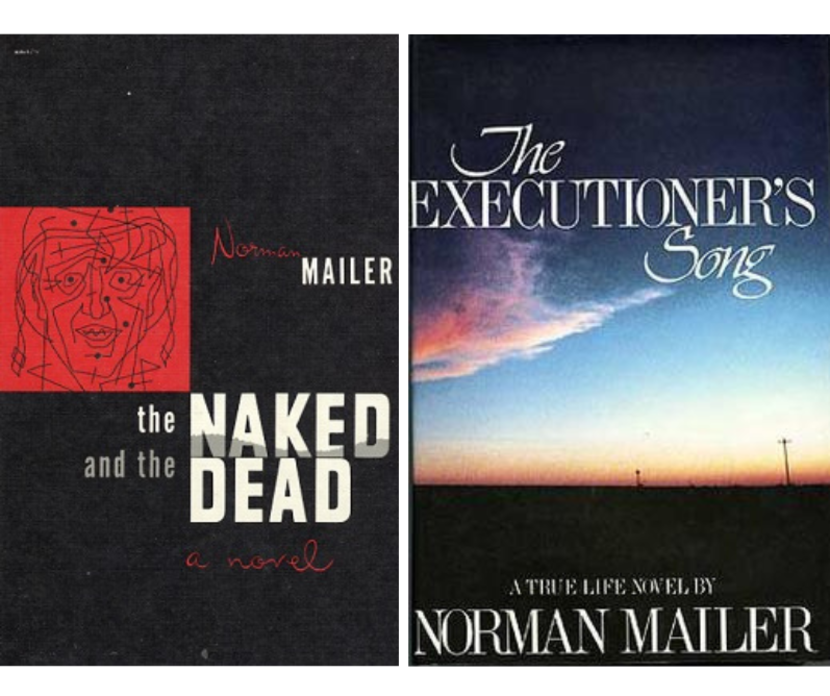
Interview with Susan Mailer, eldest of Mailer’s nine children
Speaking with Lennon in Hippocampus Magazine, Susan Mailer reflects on her relationship with her famous parent and how her work as a psychoanalyst informed her 2019 memoir In Another Place: Life With and Without My Father, Norman Mailer.
My father had many faults, and too many times he wasn’t the most supportive father. But, eventually, family became very important to him. Starting in the mid-’60s Dad gathered his children to spend a couple of months in Provincetown. In the early ’70s a month in Maine was added. I wasn’t always present, but I was there enough times to feel a growing tie with all my siblings. In Maine, we were thrown into communal living, had to share with the household chores and only had each other for entertainment. And it was this summer month every year which bonded us as siblings.
VIDEOS
Mailer and Marshall McLuhan on The Summer Way, 1968
Charlie Rose: A Conversation with Norman Mailer, 1991
Academy of Achievement Interview with Mailer, 2004
ARCHIVES & SCHOLARLY RESOURCES
Norman Mailer Society and the Project Mailer digital humanities initiative
A nonprofit dedicated to the preservation of Mailer’s legacy, it hosts an annual conference and collects on its website a wide range of papers, projects, and initiatives connected to the author and his output.
Mailer papers at the Harry Ransom Center at the University of Texas at Austin
This collection documents the author’s life via an exhaustive assortment of manuscripts, correspondence, research materials, personal records, photos, audio and video recordings, magazine clippings, awards, and more.
The Norman Mailer Room at Wilkes University
A replica of Mailer’s last study in his home in Provincetown, MA, is housed in the university’s Farley Library and includes a portion of his private library, manuscripts and revisions dating from 1984, and his studio furniture.
